Today we will be taking an honest look at having body positive weightloss. This is a sensitive subject, I know. I hope you can enter this space with open minds and use kind words to share your experience and opinions.
My Struggles With Body Positivity
When it comes to body positivity, I’ve had my share of body image issues. I’ve always been a goofy person, telling bad jokes that had prompted friends and family to laughingly say, “What is wrong with you?” In response, I would start listing off things that were ‘wrong’ with me to make them laugh even more. “Well I’m fat,” always the first thing I said, “I have crap vision, I have dyslexia, I’m short, I don’t like my feet, I’m loud,” and so on with exaggerated claims just to keep them laughing. It was always funny but these traits were all things about myself that I genuinely didn’t like.
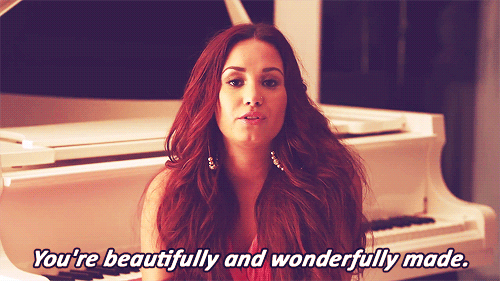
I still have body image issues but I try to remind myself that I am a great person and my value does not come from my looks. Also, I’m cute as hell. My goal is to accept my body and learn to be more body positive. For me, being body positive means accepting my body as is. Not when, not if; just now. If you’ve been tearing yourself down most of your life, this process takes time to learn.
On days when I find it hard to love myself, I look in the mirror, stare at my big belly and wish it was smaller. In addition, I’ll make a diet plan in my head and think, “In six months, I’ll be beautiful.” I know, that is not body positive. But those days, I wonder if I could be body positive and follow the diet. Can a movement whose roots are planted in empowerment ever exist supporting an industry that is only lucrative because it has perfected how to destroy a person’s self-worth? Despite the fact that the beauty industry thrives on people’s insecurities.
Can You Have Body Positive Weightloss?
Can people who diet and/or have weight loss surgery still be body positive? There is a definitive answer to this question, but we reached out to some plus-size influencers and activists to get their opinion on the subject. Their responses varied from ‘hell yeah’ to ‘not in a million years, boo’. The vast differences in their responses show a potential misunderstanding of what it means to be body-positive.
Now, there are many people who believe you can still be body positive and lose weight. Project Runway winner Ashley Nell Tipton revealed in People magazine that she had weightloss surgery. Model Rosie Mercado also had weightloss surgery, and plus size youtuber Passion Jonesz recently announced that she had weightloss surgery and can still represent for plus size women.
Being body positive isn’t a feeling, it’s an action with a purposeful goal. It’s a movement. It’s not a totally individualistic experience. The language used when talking about a movement’s message matters. Body positivity is increasingly becoming part of mainstream media. When a company chooses to use non-thin models, suddenly that company is a champion for the body positive movement.
Your Worth Is Not Determined By The Size Of Your Waist
Having a plus size woman on the cover of a magazine with a proportional body-type is just a dash of body positivity. It’s like adding sprinkles to a cupcake.
It makes the cake pretty to look at but doesn’t give much flavor or substance to the cupcake. The body positive message has been repackaged so many times that it’s long time followers are beginning to find that they’re having to shout over plus size models and fashion campaigns who are too busy cashing checks to say, “Sure, but that’s not entirely what we meant!”
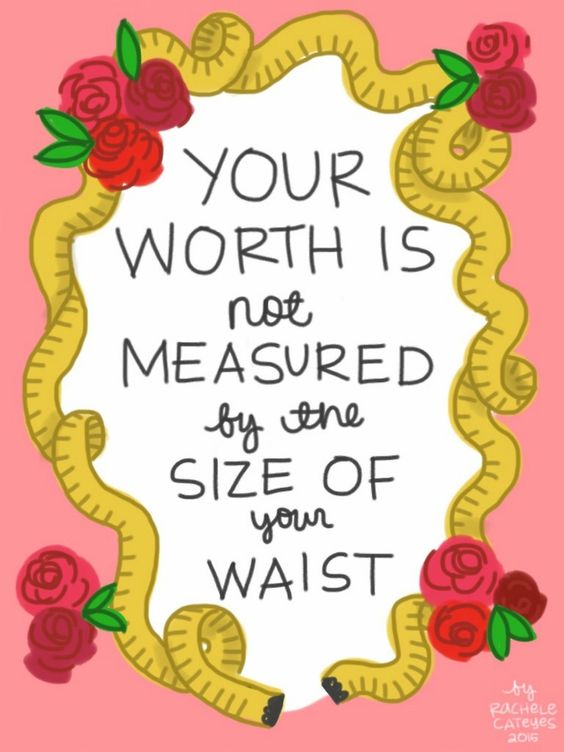
Identifying where a movement’s message can get lost is complex. I’ve come to understand that there are tiers to social justice movements that, in their own ways, are all important. I’ll talk about two of them:
First is the message and intentions of the movement and it’s creators. This is where a movement explains their reasoning for taking a stand and a plan of action. This can also include any legislative action.
For example, when the feminist movement fights to have laws enacted that grant all genders receive equal pay. In the case of body positivity, that legislative goal could be fighting for laws that protect a fat person from being discriminated against when they, for example, apply for a job. I do believe body positivity and feminism go hand in hand.
The second tier revolves around the individual’s understanding of that message and how they may choose to apply it in their life. A movement’s message and how an individual understands it are not always the same. With any theory, a person brings their own life into the equation. They will apply it to their life in a way that benefits them.
And that has the potential to be great for that person. However, when an individual or company finds a way to market a movement that benefits them, how they then repackage and pass on their thoughts on a movements meaning can distort the original message.
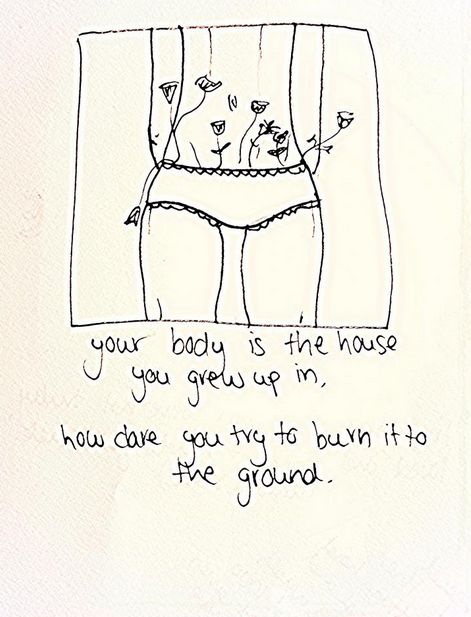
What Does Body Positive Mean?
What does Body Positive mean? In 2016, PsychologyToday published an article that tries to get to the root meaning of body positivity. Body positive wellness coach, Kaila Prins, defined the movement like this: “Body positivity’s intention is really body acceptance. The idea that you can live comfortably in your body, as it is right now, or work on treating it right through nourishment and joyful movement and self care without punishing yourself for looking the way you do.”
Marie Southard Ospina, body positive writer at Bustle wrote: “While it’s important to remember that everyone’s interpretation of body positivity is unique, at its core the term represents this wild idea that all bodies are good bodies. All bodies are worthy of self love, self care, and acceptance. All bodies are allowed to feel beautiful, regardless of their color or jean size or health status or how attractive you personally find them to be.”
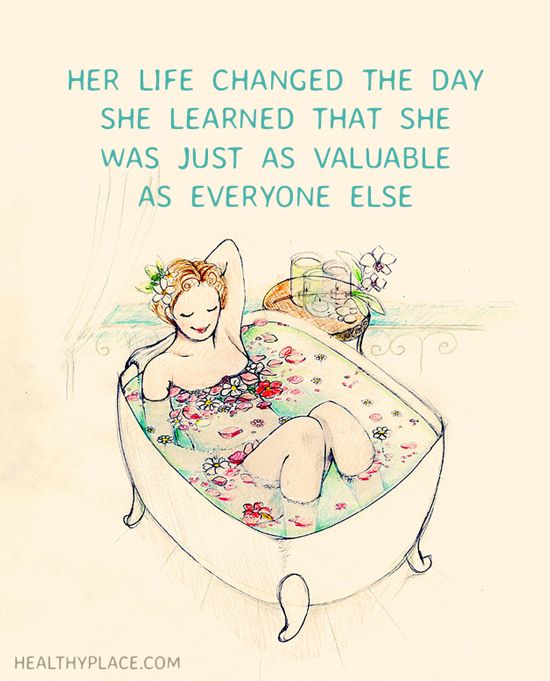
When the weather begins to heat up, there is an uptick in how often I scroll through the #bodypositive feed on social media. This Summer ‘17 (and last Summer if I’m being honest), my comforting hashtag of kickass body love has been swallowed by before-and-after weight loss photos, diet pills, creams to abolish cellulite, recipes to kill bulging bellies, and goal weight countdowns.
Diet culture in American media is the black plague on a person’s self-esteem. The weight loss industry makes “$60 billion-a-year” (LeTourneau). And of course it does. There is relentless conditioning in media that teach that consumer fat is bad and that if you are fat, you must correct it. I can’t sit through a sitcom without seeing how wonderful some lady feels after she’s lost 57lbs.
Or some guy standing in a pair of his fat jeans, pulling the waistband as far as he can from his body to show what an inspiringly small person he has become. Can I please just get a weather update without some 90s celebrity trying to sell me a home delivery service of meals to make me blossom into a lovable human woman.
Is American Diet Culture Toxic For The Body Positive Movement
American diet culture is toxic. “This culture harms self-esteem, promotes disordered eating and disconnects people from caring for and loving their body. It puts the focus on appearance, rather than transforming work that can truly better one’s life and relationships (including the one with their body)” (link). We align dieting with trying to be healthy but so much of it isn’t.
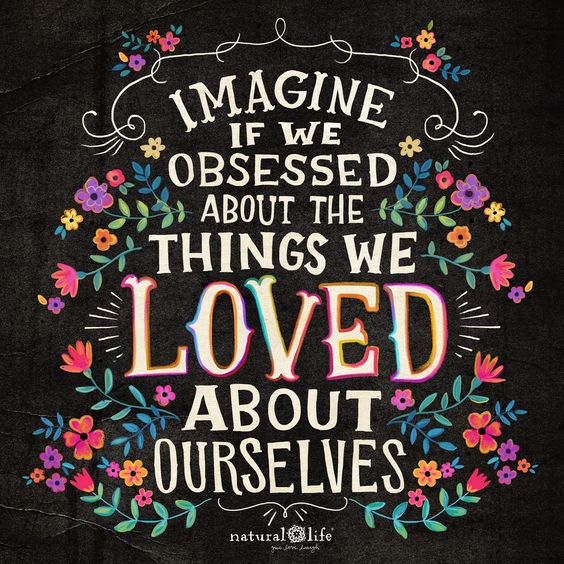
In an article for Everyday Feminism, Kaila Prins, steadfastly defines what body positivity is and isn’t. She opens her article with a tweet she encountered that linked body positivity to “training for fat loss.” Speaking about body positivity with the intent to lose weight is inherently not body positive. Prins goes on to say in regards to dieting that, “you’re engaging in an act of warfare against your body that’s usually a result of cultural conditioning against fatness.”
If you had never been taught that jiggly arms were gross, how would you feel about your own? I think if my grandmother had never told me, “You’re pretty but you need to work on this,” while grabbing and shaking her own belly, would I have ever looked in the mirror and hated mine?
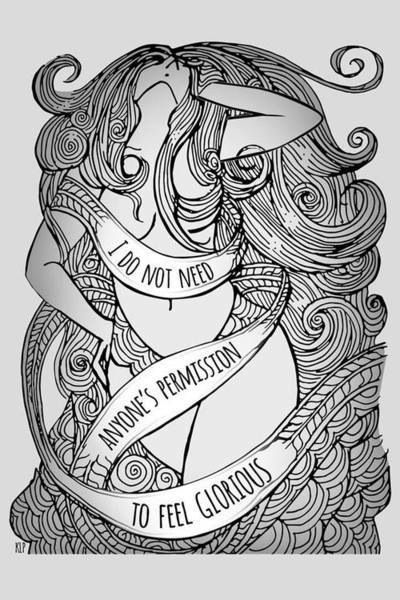
Huffington Post published Yes! You CAN Be Body Positive and Lose Weight: A Definitive Answer from a Fat Chick Losing Weight an article by Sarah Sapora who is a shrinking plus size blogger. Her article is a response to negative feedback she has gotten from plus size women who don’t believe she is body positive because she has chosen to lose weight.
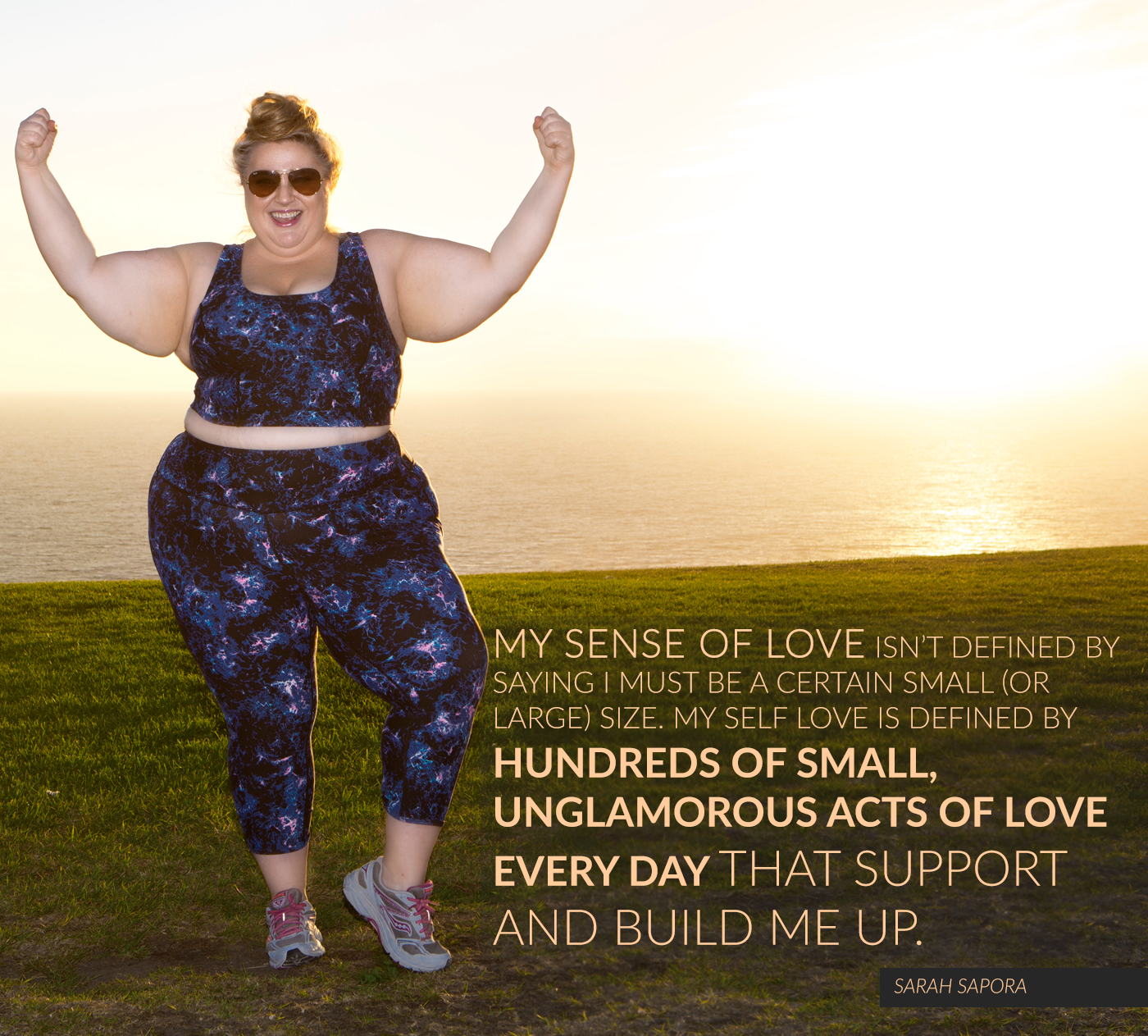
The truth is she isn’t but neither are the people attacking her for choices she’s made about her body. “Four months in, a slow and steady 31 lbs down so far, I can safely say my decision to become healthier and stronger (and yes, lose weight) comes from nothing but radical self-love… I loved my body at 350 lbs; not because it aesthetically excited me but because it was MY BODY.
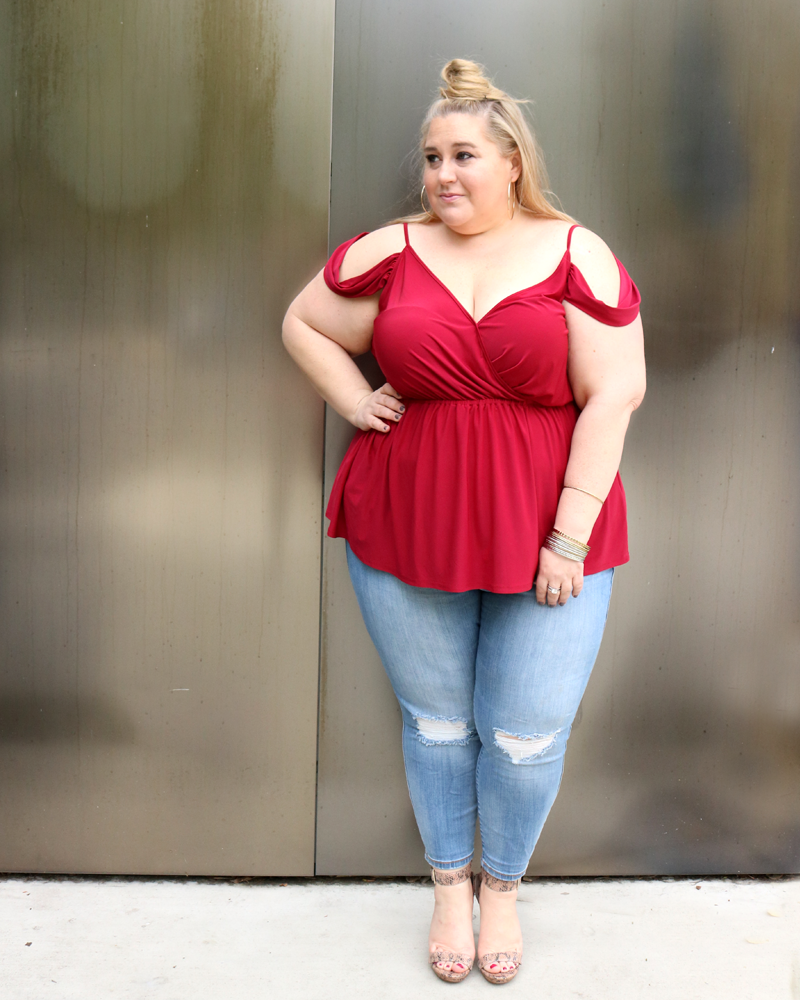
It allowed me to live every day. I loved that body… but I didn’t respect it…When I THOUGHT, I loved myself, but I was only paying attention to the paint on the walls and not the structure of the house.” A journey to be a healthier person by taking a more active role in your own life is body positive. Focusing that goal with weight loss is not body positive. Equating success with weight loss is how the diet industry has tried to break our self worth. This also goes back to body positivity not being an entirely individualistic experience.
This kind of diet talk triggers people who have struggled with their own bodies. This kind of talk is body shaming. It’s fat shaming. Even if the language isn’t directly: you are fat, therefore you are bad. If the language is: I am better because I don’t want to be/ no longer am fat – it is still very much fat phobic, body shaming. It could never be body positive. Your life is yours, of course. But you cannot claim to be a part of a movement that you don’t even understand.
This is not a direct message to Sapora, she is not the only person who does this. Sapora’s definition and explanation of body positivity goes back to those sprinkles I was talking about. Surface, ya know. She ends her article saying, “If body positivity is self-love, if it is the feeling of believing my body and my being is worthy… then f*ck yes. I am 100% body positive.
I am body positive because I love me.” True. Sort of. What she and many people are missing about body positivity is that, hey, it’s not all about you. It’s a movement about social acceptance of different bodies, it’s about visibility. It’s so much more than she is leading people to believe. Don’t get me wrong, I respect her choices and don’t judge the journey she has set for herself. In my opinion, it’s just not body positive.
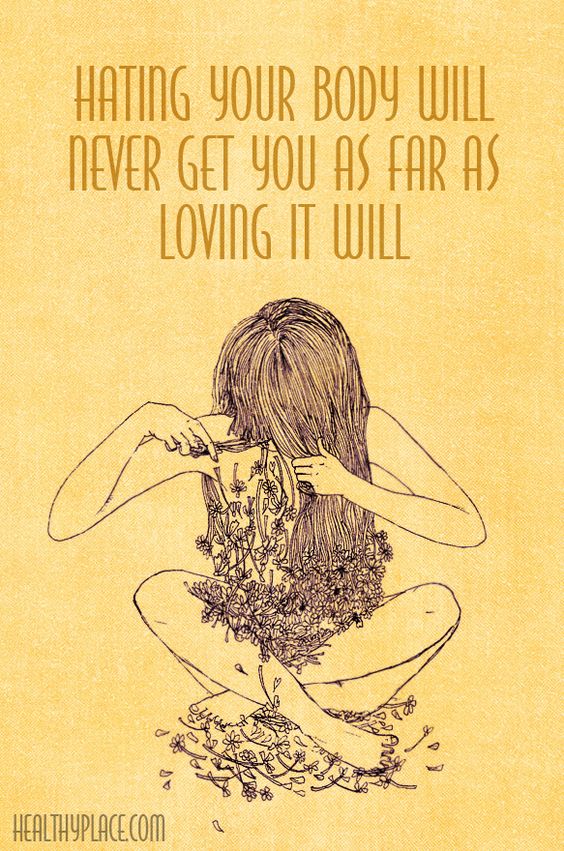
Corissa Enneking of Fat Girl Flow made a rant video on how the message of body positivity is currently being portrayed. “Body positivity is thinking critically about how we relate to our bodies within our society and how to make that a more positive experience for ourselves and others.” I remember when she first posted this video and I was bursting out of my skin with joy because someone had finally said it! (especially the part about plus size fashion not equating body positivity).
We need to think outside of ourselves and our perceptions of the Body Positive Movement. Because, Curvy Girls, body positivity is not just about us. It’s inclusive of all marginalized bodies! While your diet may not come from a place of self loathing, it’s still not body positive. Maybe you are not ready to be body positive. Maybe I’m not totally ready either and that is ok. But we cannot use #bodypositivity to spread a message that 100% contradicts what the term actually means. This is a movement that does not only refer to plus size people.
So the short answer to this question is no, body positivity and dieting cannot coexist. Dieting reinforces that your body is wrong. That can never be body positive. If someone chooses to diet, respect their choice because attacking a person for their choices is also no body positive.
But I do think there is a longer answer to this question that goes back to my idea that social justice serves multiple tiers. When a person is new to body positivity, there is a learning curve. I think this is where Sarah Sapora and I may fit into body positivity.
5 Influencers Share Their Thoughts On Losing Weight And Body Positivity
There will be a time when a person is not ready to accept all that it means to be body positive. They are actively teaching themselves to unlearn the toxic conditioning they’ve consumed all their life. In that growth period, it is important to nurture them and allow them to find their voice.The internet has a way of being isolating even when you can talk to people in countries that you’ll never travel to. People can be so quick to jump to send a stream of angry tweets. If someone is seeking to be body positive, they are in need of support. Instead of trying to shut them down, open the conversation so that both sides can gain from it.
Clapbacks never allow understanding. It just circulates aggression. When you see someone misusing #bodypositive, don’t attack. Educate. The more informed they are, the better chance we all have a accepting one another.
I didn’t just want to share my thoughts and opinions on whether or not you can still be body positive and diet. I reached out to a few bloggers and body positive activists to share their opinions as well.
When it comes to dieting and being body positive, Stacey Hantisedeloubli (@hantisedeloubli) says, “I don’t condone dieting to meet an ideal. Dieting can be extremely harmful but at the same time people can choose to do what is best for them which includes losing weight.I personally hate diet talk and would never suggest dieting to anyone but I think it has its space in body positivity. The reality is that not everyone is ready to embrace whatever body they have and we have to respect that. Whenever some fat person I know chooses to lose weight, it hurts. It stings but I can’t blame them because I don’t know what’s going on in their heads and body positivity means accepting any and all bodies.”
Youtuber Victoria Donelda (@victoriadonelda) had this to say: “I first received negative remarks about how I am “no longer body positive” because I have changed my lifestyle. When I made this choice it was in no way connected to a desire to lose weight or “stop being plus sized.”
It was simply a side effect. I do not do things for the gratification or approval of others. It is so dehumanizing to discuss other people’s bodies and choices like they have any sort of impact on our own. The people who choose to put me down for every choice I make rather than just letting me live my own life are the people who could do with a long look in the mirror. The size of the person looking back at them is not the issue here, it’s the lack of compassion and kindness they’ve adopted from society to be concerned with.
Plus Size model Saucye’ West @saucyewest
“I do not believe that dieting and being body positive can co-exists. People in the diet industry believe that fat bodies are bad and that you can not possibly have any ability or lease on life if you are fat. So how is that being body positive if you support an industry that is built on tearing people apart so that they can get to a goal that society deems as normal and good? That’s not possible.Dieting can definitely trigger insecurities and create body envy instead of body positivity. My fave saying is, you never have to wait for your weight to live your life. There are a myriad of people who diet and still hate themselves. I have seen people go through extreme weight loss and still will not put on a swimsuit. So it’s not the body it’s the mind. Embody self love and know that you are not bound by a number. You are free.
Fashion blogger @stylepluscurves
“Making healthy food choices and getting active are an incredibly important part of self-care, but diet and exercise DO NOT define who you are as a person or how “good” or “bad” you are. Thin people are not good just because they’re thin; fat people are not bad just because they’re fat.
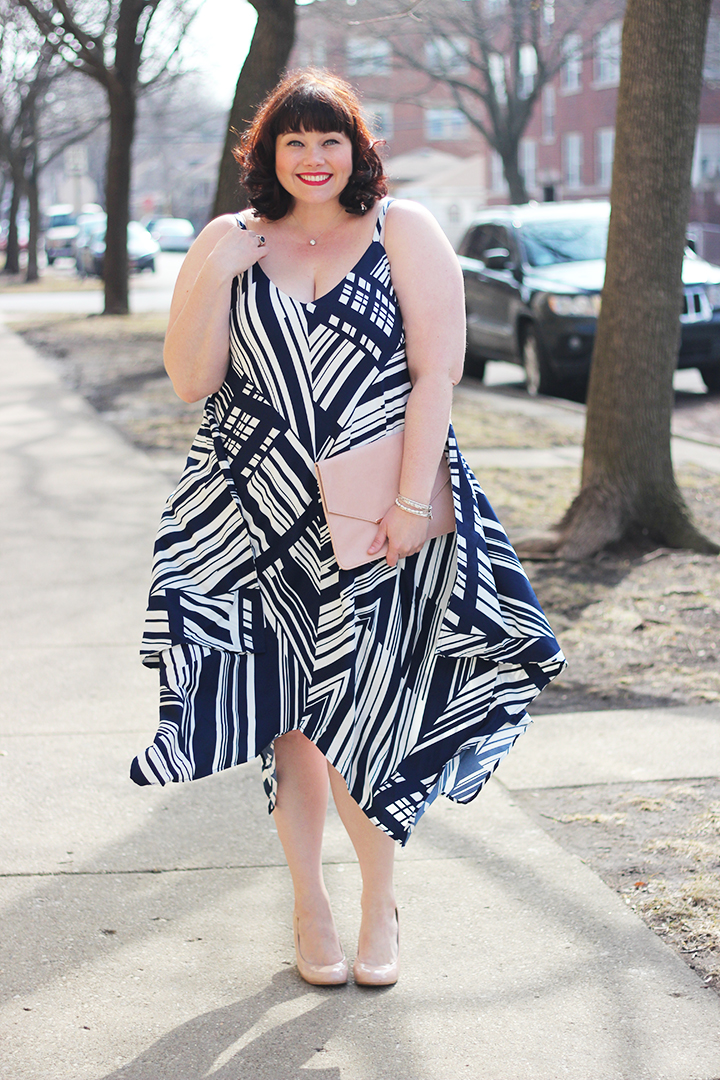
Blogger Brianna from thebwordblog.com/
“In my opinion, healthy eating and activity should be a routine part of everyone’s life, but the problem comes in when the focus is wholly on “losing weight” and that becomes the driving motivator in your life.”
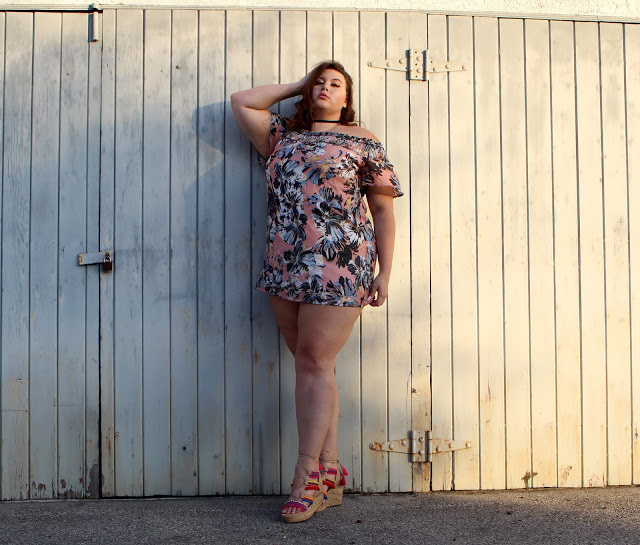
I believe that dieting and body positivity can exist at the same time. It’s no one else’s place to tell you what a good body looks like for yourself. For me, body positivity is about loving your body where it’s at now, not if and when you lose weight or when you reach a beauty ideal.
“If you’re dieting in a healthy way because you love your body and you want to maintain, take care of it, nourish yourself that is absolutely body positive. We live in a time where diet culture can be destructive and damaging. Dieting can be less about health and more about becoming an unrealistic ideal.”
Do you think weightloss and being body positive can coexist? Leave a comment below
Originally posted May 21, 2018

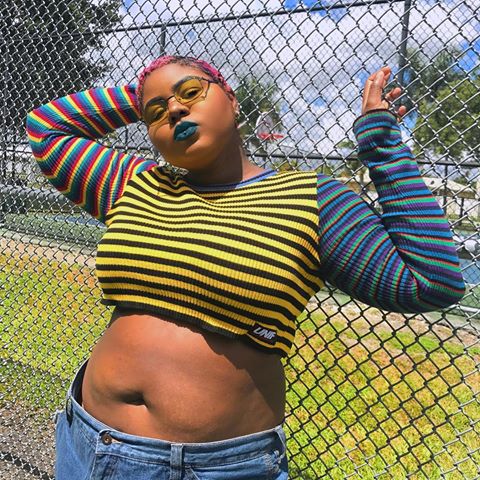
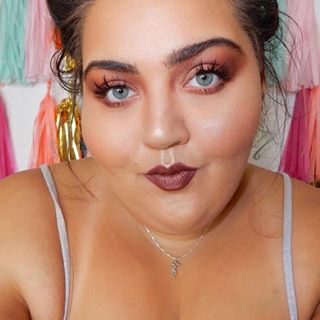
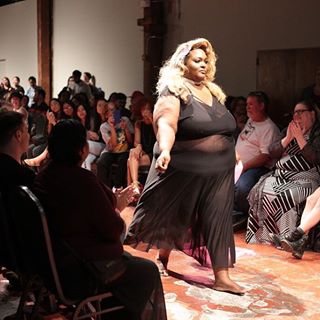
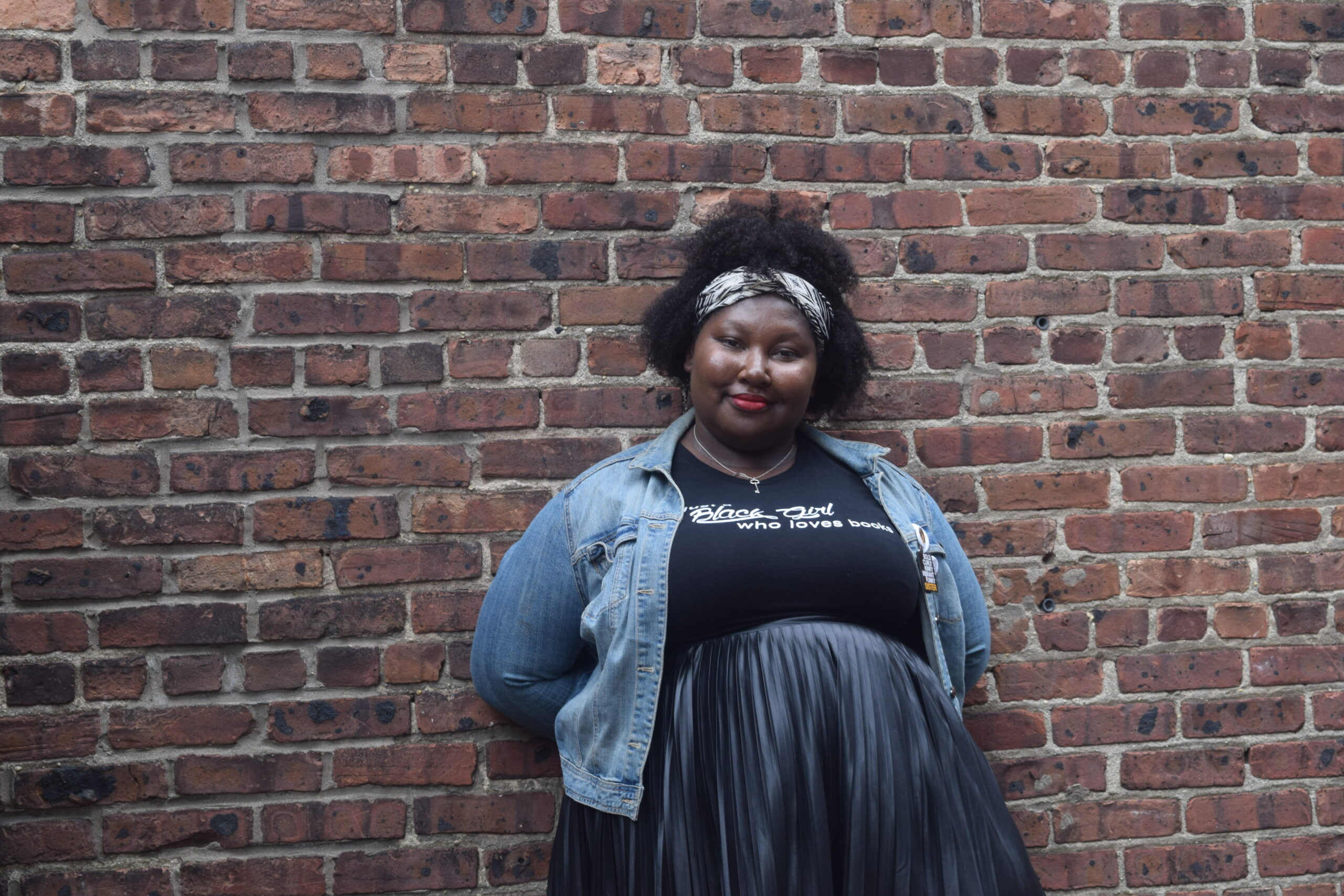
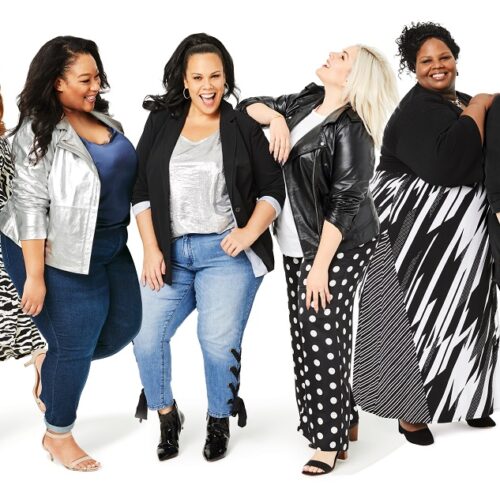
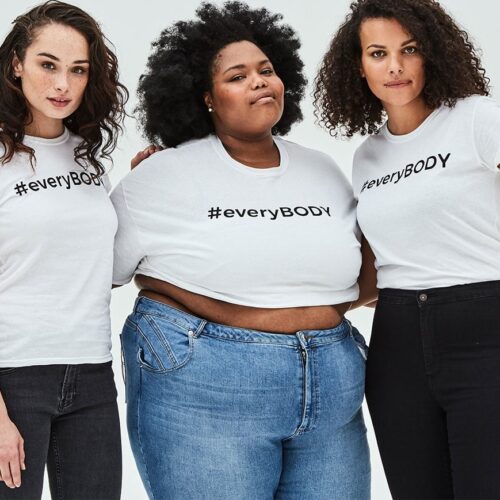
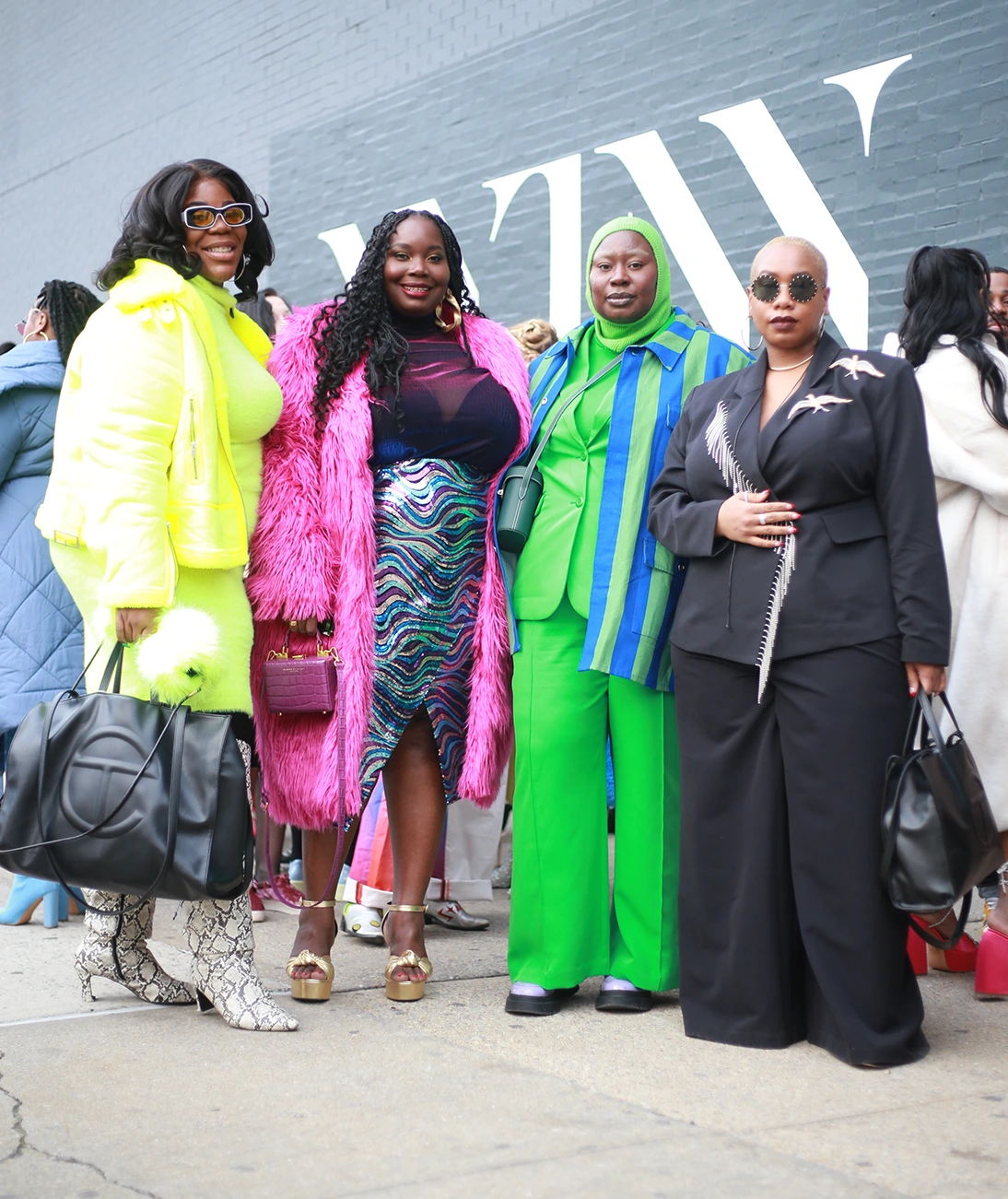
I think you can be body positive and still lose weight. Part of being body positive is being inclusive of all sizes. You can love your body enough to know when to shed a few pounds. There’s nothing wrong with that.
Why can’t women just be able to love their bodies the way they want without people being judgmental. Am I supposed to stay unhealthy for a movement. Nope!
Wonderful article. It just shows the diversity of opinions on being body positive.
To me, being body positive is being able to enjoy in your skin right now.
Healthy eating and Workouts are ways of self care.
But an obsession with weight loss, the negative self talk that accompanies failure to follow a diet for a day or many, the post poning of living life till weight loss is achieved, that isn’t body positive, that’s the reverse of it and is criminal.
But being a mindless eater and not working out isnt enough to be body positive.. Its about what talk is going on in the mind
We all know our self talk and can be the only judge of how body positive we are
Absolutely!!! I feel like they are two separate things. For me being body positive has always been about loving myself no matter what weight I am. That means if I can love myself at 150 pounds I can love myself equally as much at 250. I just feel like women in particular are very critical of themselves and other women. I have seen a Size 2 complain about their body just as much as someone that is size 22. I have seen a Size 22 embrace their body while a size 2 points out what they don’t like about their body. Being Body positive is a mindset. If ppls want to lose weight, eat better whatever to try to live a healthier lifestyle that is their
prerogative. Like dang let ppls live!! To say that someone is not body positive because they lose weight or start eating healthy is far fetched. There are cases where for medical reason one has to lose weight even if they are totally ok with their body and love themselves as they are. So does that mean all of a sudden they can’t use the term body positive? Like come on!!!
You speak of body positivity going hand in hand with feminism, yet you’re putting down women for saying they’re not body positive when they’re trying to lose weight. There’s a lot of contradictory messages in this article.
Hi Jax! Thanks for commenting 🙂 I’m glad you brought up this point because it is exactly what I thought some might misunderstand about this article. I am not attacking anyone. I respect and don’t judge anyone’s choices to do what they believe is best for their body. Especially women. We are judged so heavily based on our looks and weight. What I’m drawing attention to is that body positivity has a specific message. Someone losing weight with the right mindset is body positive. But often times, people punish their bodies to lose weight. That is not body positive. Dieting puts you in a mindset to judge your body. That is also not body positive. Accompanying success with weight loss in anyway is not body positive because that directly means that your body was not good before. That is not body positive.
Is that the famous Dove ad pictures in this article? Where are the very skinny women in that lineup? Where are the muscular women? I see only one body type: overweight (though to varying degrees). I also don’t see any old women in that lineup. Does bopo apply only to young overweight, non-muscular women? How hypocritical this movement is.